Mindful Communication to Enhance Nutrition and Planetary Health
This event has passed. Thanks to all who participated! A recap of the day’s discussions is available here.
Jump to: Overview | Schedule | Selected Readings | Speakers & Participants
Overview
 This day-long symposium will bring together leading academics, researchers, and practitioners in public health, climate science, and mindfulness.
This day-long symposium will bring together leading academics, researchers, and practitioners in public health, climate science, and mindfulness.
While shifting to healthy and sustainable diets will be a focus, we aim to enhance communication in all aspects of public health. We will explore communication broadly, at all levels and through actions and experiences. Themes will include tailored messaging, leveraging media and credible sources, incorporating interactive tools, and focusing on personal relevance to help individuals understand and integrate healthy and sustainable food choices into their daily lives. The potential for positive synergies between healthy eating and environmental sustainability to promote positive change will be explored.
Symposium Schedule
Arrival
- 7:45 – 8:40 a.m. Registration and Continental Breakfast
Opening Session
- 8:45 – 9:00 a.m. Framing the Day – Br. Phap Luu
- 9:00 – 9:05 a.m. Welcome and Introduction – Dr. Harvey Fineberg
- 9:05 – 9:10 a.m. Summary of Topics – Dr. Walter Willett
Presentations
- 9:15 – 9:45 a.m. “Influential Change Networks” – Dr. Damon Centola
- 9:45 – 10:15 a.m. “Communication and Community: Bringing the Social Back into Well-being” – Dr. K. Vish Viswanath
- 10:15 – 10:45 a.m. “Intellectual Humility as a Path for Reducing Misinformation Receptivity” – Dr. Shauna Bowes
Break
10:45 – 11:00 a.m.
Breakout Sessions
11:00 a.m – 12:00 p.m.
- Group 1: Working through political and industry resistance to dietary enhancements
- Facilitators: Dr. Walter Willett & Sr. The Nghiêm
- Location: 5th Floor, Main Conference Room (right side)
- Group 2: Addressing misinformation and social media influences in dietary health
- Facilitators: Brett Otis & Br. Phap Luu
- Location: 5th Floor, Main Conference Room (left side)
- Group 3: Mindfulness, diet, and healthier personal and planetary choices
- Facilitators: Dr. Teresa Fung & Sr. Than Nghiem
- Location: 2nd Floor, Classroom 206
- Group 4: The role of change networks and social reinforcement in sustained dietary change
- Facilitators: Brian Clancy & Br. Nam Sac
- Location: 5th Floor, Classroom 503
Mindful Lunch
- 12:00 – 12:05 p.m. Instruction on Mindful Eating – Br. Nam Sac
- 12:05 – 1:00 p.m. Mindful Lunch
Mindful Walk
- 1:00 – 1:05 p.m. Instruction on Mindful Walking – Sr. T. Chua Xua
- 1:05 – 1:45 p.m. Mindful Walk
Closing Session
- 2:00 – 2:45 p.m. Breakout Group Alignment and Key Takeaways – Group Facilitators
- 2:45 – 3:00 p.m. Perspectives – Dr. Eric Loucks
- 3:00 – 3:30 p.m. Recap & Open Discussion – Dr. Harvey Fineberg
- 3:30– 4:00 p.m. Closing – Plum Village Monastics
Our speakers have been invited to share their personal perspectives. They do not speak for Harvard.
A special thanks to the Department of Nutrition staff volunteers: Patrice Brown, Jessica Duni,
Hilary Farmer, Debbie Flynn, Valerie Otulo, Hazel Seung, Katrina Soriano, and Amelia Zhang
Selected Readings
In advance of our symposium, we invite you to explore these articles and information that may be relevant to our breakout groups and conversations throughout the day:
- Understanding and Addressing Misinformation About Science
- Science is not a collection of anecdotes, we believe in randomised controlled trials: Harvard prof Kasisomayajula Viswanath
- Viswanath K, McCloud RF, Bekalu MA. Section VII, Ch. 29: Communication, Health and Equity: Structural Influences. In T. L. Thompson & N. G. Harrington. (Eds.) Routledge Handbook of Health Communication. Routledge; 2022. Accessible at: https://id.lib.harvard.edu/alma/99156585568403941/catalog
- Digital Media, Cognition, and Brain Development in Adolescence
- Lugano Happiness Forum
- Hidden Brain Podcast: The Snowball Effect with Damon Centola
- Centola D, Becker J, Brackbill D, Baronchelli A. Experimental evidence for tipping points in social convention. Science. 2018 Jun 8;360(6393):1116-9.
- Full text, along with summaries, video, and related resources available at: Creating Critical Mass (Network Dynamics Group)
- Centola D. An experimental study of homophily in the adoption of health behavior. Science. 2011 Dec 2;334(6060):1269-72.
- Full text, along with summaries, video, and related resources available at: Spreading Behavior Online (Network Dynamics Group)
- Centola D. The spread of behavior in an online social network experiment. Science. 2010 Sep 3;329(5996):1194-7.
- Full text, along with summaries, video, and related resources available at: Influencers and Optimal Seeding (Network Dynamics Group)
- Legg T, Hatchard J, Gilmore AB. The science for profit model—how and why corporations influence science and the use of science in policy and practice. Plos one. 2021 Jun 23;16(6):e0253272. Accessible at: https://journals.plos.org/plosone/article?id=10.1371/journal.pone.0253272
- Mindful Eating – The Nutrition Source
- Plate and the Planet – The Nutrition Source
Symposium Speakers, Participants, & Staff
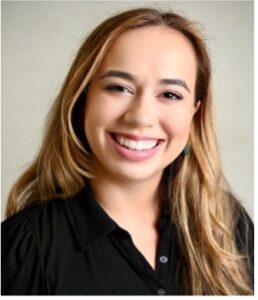 Dr. Shauna Bowes
Dr. Shauna Bowes
Shauna Bowes, PhD, received her doctorate in clinical psychology from Emory University. She is currently a National Science Foundation Social, Behavioral, and Economic Sciences Postdoctoral Fellow at Vanderbilt University in Psychology and Human Development. Her research program uses an individual differences approach to understand what makes people turn toward and away from accurate and openminded thinking. She specifically focuses on intellectual humility, political polarization, and misinformation susceptibility to build an understanding of when, why, and how people latch on to certain beliefs over others.
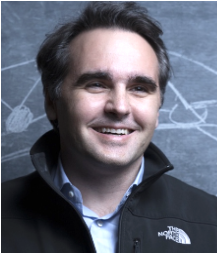 Dr. Damon Centola
Dr. Damon Centola
Damon Centola, PhD, is the Elihu Katz Professor of Communication, Sociology and Engineering at the University of Pennsylvania (Penn) where he is Director of the Network Dynamics Group and a Senior Fellow at the Leonard Davis Institute of Health Economics. Before coming to Penn, Centola was a Professor of System Dynamics at the Massachusetts Institute of Technology and a Robert Wood Johnson Fellow at Harvard University. He is a leading scholar on social networks and behavior change. Centola’s work has received numerous awards including the Goodman Prize for Outstanding Contribution to Sociological Methodology; the James Coleman Award for Outstanding Research in Rationality and Society; and the Harrison White Award for Outstanding Scholarly Book. He was a developer of the NetLogo agent-based modeling environment and was awarded a U.S. Patent for inventing a method to promote diffusion in online networks. He is a member of the Sci Foo community and Fellow of the Center for Advanced Study in the Behavioral Sciences at Stanford University. His work has been funded by the National Science Foundation, the Robert Wood Johnson Foundation, Facebook, the National Institutes of Health, the James S. McDonnell Foundation, and the Hewlett Foundation. Popular accounts of his work have appeared in The New York Times, The Washington Post, The Wall Street Journal, Wired, TIME, The Atlantic, Scientific American and CNN, among other outlets. His speaking and consulting clients include Amazon, Microsoft, Apple, Cigna, Google, the Smithsonian Institution, the American Heart Association, DOD, DARPA, General Motors, the National Academies, the U.S. Army and the NBA. He is a series editor for Princeton University Press, and the author of How Behavior Spreads: The Science of Complex Contagions (Princeton, 2018), and Change: How to Make Big Things Happen (Little Brown, 2021).
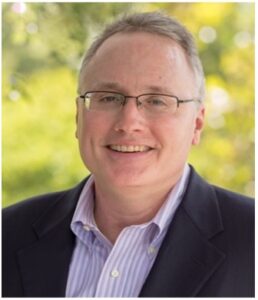 Brian Clancy
Brian Clancy
Brian Clancy, MBA, attended his first retreat with Thich Nhat Hanh and Sister Chan Khong in 2002. After graduating from Cornell University and the Harvard Business School, Clancy spent the first chapter of his career in the financial services industry. Among other roles, he served as the Chief Financial Officer for Fidelity Management and Research. Fifteen years ago, he shifted his focus to global poverty alleviation by working with microfinance pioneer Accion International and co-founding the Center for Financial Inclusion. Clancy also served as the President of the Boston Public Library Foundation and the chair of the library’s Special Collections Committee. Most recently he co-founded Citizen Connect – an online platform that amplifies the work of over 600 civic renewal organizations seeking to address political polarization.
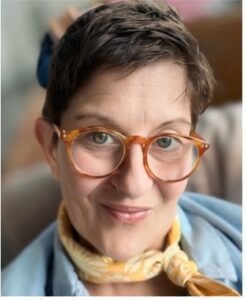 Dawn M. DeCosta
Dawn M. DeCosta
Dawn DeCosta is the Executive Director of the Thich Nhat Hanh Center for Mindfulness in Public Health, working under the direction of Dr. Walter Willett. In her role as Executive Director, she is the strategic partner to the Center Director, providing thought leadership and broad high-level management support focused on mindfulness and public health. She is responsible for advising and overseeing all day-to-day operations of the Center including the Center’s Communication’s Manager. She is responsible for aligning the Center’s resources and energies with its mission, working with the Center leadership and Advisory Board on setting programmatic long-range and strategic priorities and fostering partnerships across the University and beyond. She has spent her 22-year career at Harvard University and Harvard teaching hospitals including Massachusetts General Hospital and Brigham and Women’s Hospital. She lives in Boston, Massachusetts with her spouse and teenager and her main passion outside of work is art. She has been a foster parent to six children, and a host parent to three year-long exchange students (Germany, Switzerland, and China). She received The Five Mindfulness Trainings at Deer Park Monastery in October 2023 and is a member of the Blooming Strengths Sangha.
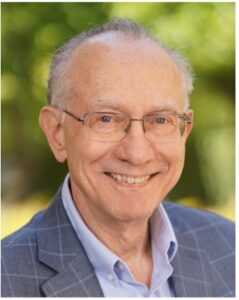 Dr. Harvey V. Fineberg
Dr. Harvey V. Fineberg
Harvey V. Fineberg, MD, PhD, co-chair of the Thich Nhat Hanh Center for Mindfulness in Public Health Advisory Board and president of the Gordon and Betty Moore Foundation. He previously served as president of the U.S. National Academy of Medicine (previously Institute of Medicine), as provost of Harvard University, and as dean of the Harvard T.H. Chan School of Public Health. Prior to joining a philanthropic foundation, he devoted most of his academic career to the fields of health policy and medical decision-making. His past research has focused on global health, assessment of medical technology, evaluation and use of vaccines, response to pandemics, and dissemination of medical innovations. Fineberg previously chaired the boards of the Carnegie Endowment for International Peace and the William and Flora Hewlett Foundation. He chairs the boards of the Science Philanthropy Alliance and the CMB Foundation, and served on the boards of the Josiah Macy, Jr. Foundation and the Association FXB (USA). He helped found and served as president of the Society for Medical Decision Making. Fineberg serves on the editorial board of the New England Journal of Medicine and in several advisory capacities, including the foresight committee of the Veolia Environment Institute and the scientific advisory board of the Singapore National Research Foundation. He chairs the advisory board of the Peterson Center on Healthcare, co-chairs the inaugural international advisory board of Tsinghua University Vanke School of Public Health and chairs the U.S. National Academies standing committee on emerging infectious diseases and 21st-century health threats. Fineberg is co-author of the books Clinical Decision Analysis, Innovators in Physician Education, and The Epidemic That Never Was: An Analysis of the Controversial U.S. Immunization Program Against Swine Flu in 1976. He has co-edited books on such diverse topics as AIDS prevention, vaccine safety, understanding risk in society, and global health and has authored numerous articles published in professional journals. Fineberg is the recipient of several honorary degrees, including the Frank A. Calderone Prize in Public Health, and the Henry G. Friesen International Prize in Health Research.
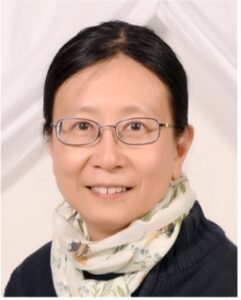 Dr. Teresa Fung
Dr. Teresa Fung
Terersa Fung, MS, ScD, is the Ruby Winslow Linn Professor of Nutrition at Simmons University, and an Adjunct Professor of Nutrition at the Harvard T.H. Chan School of Public Health. Her expertise is in developing diet quality measures and examining disease risk. As a nutritional epidemiologist, her work focused on examining the associations between various measures of diet quality and diabetes, cardiovascular disease, cancer, weight change, geriatric fractures, and geriatric frailty. Recently, she has expanded her work into mindful eating research. Fung completed a BS and MS in nutrition at Cornell University, and a dual Doctor of Science in epidemiology and nutrition at the Harvard T.H. Chan School of Public Health. She is also a Registered Dietitian. She is an Associate Editor for the Journal of Nutrition and a member of the Editorial Board for the Journal of the Academy of Nutrition and Dietetics. In 2022, Fung received the Elaine R. Monsen Award for Outstanding Research Literature from the Academy of Nutrition and Dietetics. In 2023-2024, she served a member of the 2025-2030 Dietary Guidelines for Americans Scientific Advisory Committee.
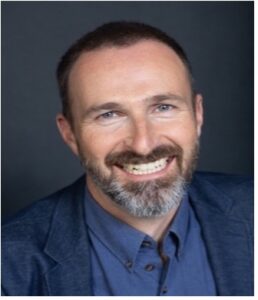 Dr. Eric B. Loucks
Dr. Eric B. Loucks
Eric B. Loucks, PhD, is a professor, researcher, and innovator in the study of mindfulness and health. As Director of the Mindfulness Center at Brown University, he leads efforts to advance the science and application of mindfulness-based practices to improve well-being and address public health challenges. Loucks developed the Mindfulness-Based College for Young Adults (MB-College) program and the Mindfulness-Based Blood Pressure Reduction (MB-BP) program, both of which have been rigorously evaluated through NIH-funded randomized controlled trials. His research encompasses mindfulness epidemiology, evidence synthesis, and implementation science, with a focus on translating mindfulness research into practical tools that support health and well-being. During his career, Loucks held teaching positions at Harvard, McGill, and Brown Universities. His work has been featured in prominent media outlets, such as The New York Times, TIME Magazine, and the BBC. He has provided numerous presentations to national and state governmental bodies. Committed to bridging rigorous science with real-world impact, Loucks empowers individuals and communities to thrive through mindfulness practices where evidence supports their efficacy.
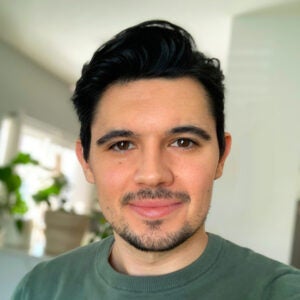 Brett O. Otis
Brett O. Otis
Brett O. Otis, ALM, is a Communications Project Manager in the Department of Nutrition at the Harvard T.H. Chan School of Public Health where he provides strategic support to multiple initiatives, including the department’s primary public-facing website, The Nutrition Source. He also collaborates on a series of activities affiliated with the Thich Nhat Hanh Center for Mindfulness in Public Health. Additionally, Brett is a co-author of Eat Well and Keep Moving (3rd edition, 2016), a school-based nutrition and physical activity program for upper-elementary school children. Merging education and training in journalism, health communications, and sustainability, along with professional experience in public health nutrition communications, his work is all about making research accessible and useful to a range of audiences—from policymakers and educators to the public. He regularly guest lectures on these topic areas, with a particular focus on public perceptions of nutrition and health, the influence of social media, and misinformation. Outside of his work, Brett volunteers on an urban agriculture project aiming to expand food production capacity and increase local food security on the North Shore of Massachusetts.
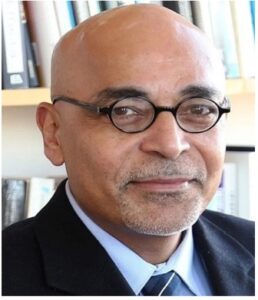 Dr. K. “Vish” Viswanath
Dr. K. “Vish” Viswanath
“Vish” Viswanath, PhD, is the Lee Kum Kee Professor of Health Communication in the Department of Social and Behavioral Sciences at the Harvard T. H. Chan School of Public Health and in the McGraw-Patterson Center for Population Sciences at the Dana-Farber Cancer Institute (DFCI). He is the Faculty Director of the Health Communication Core of the Dana-Farber/Harvard Cancer Center. Additional administrative and scientific leadership positions held by Viswanath include Director of the Center for Translational Communication Science, DFCI; Director, Harvard Chan India Research Center and Director, Lee Kum Sheung Center for Health and Happiness, Harvard Chan. He is the founding Director of DF/HCC’s Enhancing Communications for Health Outcomes Laboratory. Viswanath’s work is driven by two fundamental concerns: (a) how to center equity in drawing on translational communication science to promote health and well-being for all population groups, and (b) to involve community-based organizations and stakeholders through participatory research in promoting social change. The goal of the program of research in his lab is to influence public health policy and practice through knowledge translation and translational communication. His work draws from literatures in communication science, social epidemiology, dissemination and implementation, and social and health behavior sciences. His work so far has documented the relationship between communication inequalities, poverty and health disparities, and knowledge translation to address health disparities. He has written more than 300 journal articles and book chapters concerning communication inequalities and health disparities, knowledge translation, public health communication campaigns, e-health and digital divide, public health emergency preparedness and the delivery of health communication interventions to underserved populations. He is the co-editor of four books and monographs: Mass Media, Social Control and Social Change (Iowa State University Press, 1999), Health Behavior and Health Education: Theory, Research & Practice, 5th Ed. (Jossey Bass, 2015), The Role of Media in Promoting and Reducing Tobacco Use (National Cancer Institute, 2008) and A Socioecological Approach to Addressing Tobacco-Related Health Disparities (National Cancer Institute, 2017) and a co-author of The First 1000 Days of Life: Lessons from Social and Behavior Change Communication (Ministry of Women and Child Development, Government of India, 2021). He serves on several national committees including the U.S. Department of Health and Human Services, the Centers for Disease Control and Prevention, and the National Academy of Sciences, Engineering and Medicine (SASEM). He is currently Chair of NASEM’s Consensus Study Committee on Understanding and Addressing Science Misinformation, a member of the Standing Committee on Advancement of Science Communication at NASEM and was a member of NASEM’s Planning Committee on The Public Health Infodemic and Trust in Public Health as a National Security Threat: A Workshop.
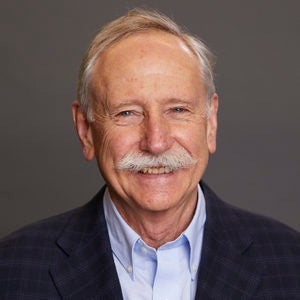 Dr. Walter C. Willett
Dr. Walter C. Willett
Walter C. Willett, MD, MPH, DrPH, is director and member of the Advisory Board of the Thich Nhat Hanh Center for Mindfulness in Public Health and the Frederick John Stare Professor of Epidemiology and Nutrition at the Harvard T.H. Chan School of Public Health. He was the chair of the department of nutrition from 1991 to 2016. Willett studied food science at Michigan State University and graduated from the University of Michigan Medical School before obtaining a Masters and Doctorate in Public Health from Harvard T.H. Chan School of Public Health. Willett has focused much of his work over the last forty years on the development and evaluation of methods, using both questionnaire and biochemical approaches, to study the effects of diet on the occurrence of major diseases. He has applied these methods starting in 1980 in the Nurses’ Health Studies I and II and the Health Professionals Follow-up Study. Together, these cohorts that include nearly 300,000 men and women with repeated dietary assessments, are providing the most detailed information on the long-term health consequences of food choices. Willett has published over 2,100 original research papers and reviews, primarily on lifestyle risk factors for heart disease, cancer, and other conditions and has written the textbook, Nutritional Epidemiology, published by Oxford University Press, now in its third edition. He also has written four books for the public including: Eat, Drink and Be Healthy: The Harvard Medical School Guide to Healthy Eating, which has appeared on most major bestseller lists; The Fertility Diet co-authored with Jorge Chavarro and Pat Skerrett. Willett is the most cited nutritionist internationally and is among the five most cited persons in all fields of clinical science. He is a member of the National Academy of Medicine, the National Academy of Sciences, and the recipient of many national and international awards for his research.
A special thank you to the following staff members in the Department of Nutrition who kindly volunteered to help with this symposium: Patrice Brown, Jessica Duni, Hilary Farmer, Debbie Flynn, Valerie Otulo, Hazel Seung, and Katrina Soriano.
Monastic Participants
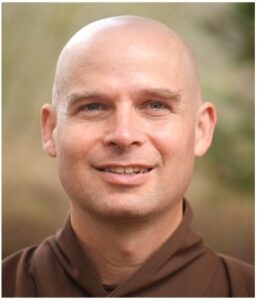 Brother Phap Luu
Brother Phap Luu
Ordained as a monk since 2003, Brother Phap Luu (Brother Stream) received Transmission of the Lamp from Zen Master Thich Nhat Hanh to teach in 2011. He helped start Wake-Up, the international movement for young people, as well as the Happy Farm, Plum Village’s organic farming community, and has been working with Wake-Up Schools since its inception in 2012 to bring mindfulness to schools. He has served as a monastic editor several of Thich Nhat Hanh’s books including Happy Teachers Change the World, Stepping into Freedom, Cracking the Walnut, The Admonitions and Encouraging Words of Master Guishan, and How to Focus. Brother Phap Luu leads mindful backpacking retreats in nature around Deer Park Monastery in Escondido, California and has been working lately with scientists at Dartmouth College and Harvard T.H. Chan School of Public Health to develop research on the effect of Plum Village mindfulness practices on children. Brother Phap Luu serves on the Advisory Board of the Thich Nhat Hanh Center for Mindfulness in Public Health at the Harvard T.H. Chan School of Public Health.
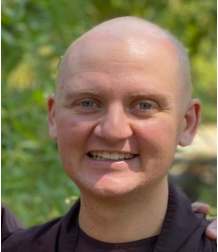 Brother Minh Niem
Brother Minh Niem
Brother Minh Niem (Brother Mindfulness), is an American monk ordained in 2020 at Deer Park Monastery. He began his journey with the Plum Village tradition in 2004 after attending a Dharma talk by Thich Nhat Hanh with his parents at Deer Park Monastery. Brother Minh Niem finds joy in painting, baking sourdough bread, hiking, backpacking, and savoring tea at sunrise from the new monks’ residence in Solidity Hamlet.
Brother Nam Sac
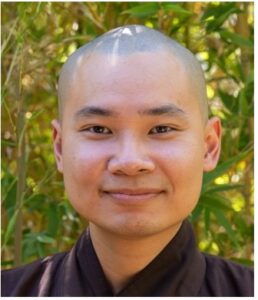 Brother Chan Troi Nam Sac (Brother Five Colours), a Vietnamese monastic ordained in 2011, first encountered the Plum Village tradition in the summer of 2007 at a youth retreat at Prajna Monastery, in Vietnam. Encouraged by a family friend, his mother brought him and his older brother to the retreat—a transformative experience that inspired both to follow the monastic path. Today, his brother is also a monk at the Thai Plum Village. As an active member of the Dharma Teacher Council, Care Taking Council, and Sound Team, Brother Nam Sac plays a vital role in the monastery. He is responsible for organizing events and activities, as well as managing the sound system to support the Sangha’s daily practices and ceremonies. Brother Nam Sac nurtures his creative and communal spirit through hobbies such as playing the violin, listening to classical music, making coffee for his fellow monastics, and sharing his love of cooking with the community.
Brother Chan Troi Nam Sac (Brother Five Colours), a Vietnamese monastic ordained in 2011, first encountered the Plum Village tradition in the summer of 2007 at a youth retreat at Prajna Monastery, in Vietnam. Encouraged by a family friend, his mother brought him and his older brother to the retreat—a transformative experience that inspired both to follow the monastic path. Today, his brother is also a monk at the Thai Plum Village. As an active member of the Dharma Teacher Council, Care Taking Council, and Sound Team, Brother Nam Sac plays a vital role in the monastery. He is responsible for organizing events and activities, as well as managing the sound system to support the Sangha’s daily practices and ceremonies. Brother Nam Sac nurtures his creative and communal spirit through hobbies such as playing the violin, listening to classical music, making coffee for his fellow monastics, and sharing his love of cooking with the community.
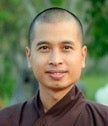 Brother Dat Nguyen
Brother Dat Nguyen
Brother Dat Nguyen (Brother Attained Aspiration) began practicing with Plum Village in 2007 as a lay friend, seeking a path to healing and transformation, especially from depression. His first retreat, Happiness in Your Hands, was held at the Tu Hieu-root temple in Hue, Vietnam. Deeply inspired, he continued his journey with the lay Sangha Free Cloud in Da Nang before ordaining as a monastic in 2013 at the Thai Plum Village. After ten years of dedicated practice, he moved to Deer Park Monastery in 2023, where he continues to practice and serve the community. His journey has also led him to engage with young people through the Wake-Up program in Thailand, sharing mindfulness practices to support their well-being. Brother Dat Nguyen finds deep joy in living simply and harmoniously with nature. He believes in the healing power of the natural world and enjoys using sunlight for cooking, reflecting his appreciation for sustainability and the abundance of solar energy. He sees mindful music as a powerful tool for transformation, particularly in helping young people find healing and peace.
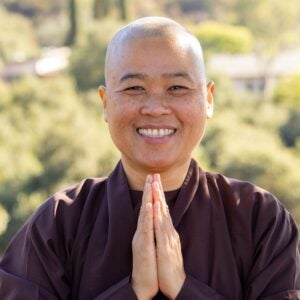 Sister Trang Chua Xua
Sister Trang Chua Xua
Sister Trang Chua Xua (The Moon over The Ancient Temple) was ordained in 2010, at the age of 29, by Zen Master Thich Nhat Hạnh at Plum Village Thailand. A university graduate with a major in Sociology from Ho Chi Minh City, Viet Nam, her mindfulness journey began in 2008 after reading The Heart of the Buddha’s Teaching by Thich Nhat Hạnh. She deepened her practice at Bat Nha Monastery, Plum Village Vietnam, attending monthly retreats and becoming a founding member of the Wake-Up Sangha (Xuân Phong Sangha) in Ho Chi Minh City. Upon ordination in 2010, she joined the Golden Bamboo monastic family with thirteen brothers and sisters, all of whom continue to practice joyfully within the Plum Village community worldwide. In 2012, she was transferred to New Hamlet in Plum Village France and later to Maison de l’Inspir in Paris. In 2020, she received the Lamp Transmission at Plum Village, European Institute of Applied Buddhism in Germany and two years later she arrived at Deer Park Monastery in Escondido, California, marking her 15th year as a monastic. In 2023, she was part of the organizing team for The Buddha The Scientist Retreat at Deer Park Monastery. She aspires to bring mindfulness practice to young people in modern society, who have vast amounts of knowledge but often lack essential skills to cultivate inner stability and freedom in heart.
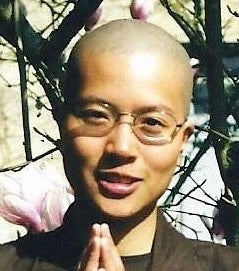 Sister Thệ Nghiem
Sister Thệ Nghiem
Sister Thệ Nghiem (Sister True Vow), currently the abbess of White Crane Hamlet at Blue Cliff Monastery in Pinebush, New York, is a second-generation Vietnamese American who grew up in Pennsylvania. As a practitioner in the Plum Village tradition, she received Dharma Lamp Transmission from Zen Master Thich Nhat Hanh in 2006. She is one of the pioneers of Blue Cliff Monastery, helping to guide its transformation from a family holiday resort into a mindfulness practice center. As a musician, she has composed several chants and songs since becoming a nun with the Blue Cliff Ensemble, Plum Village Ensemble, and Plum Village Records. She has a deep interest in Buddhist psychology and its connection with Western psychology, merging the two to help people heal and touch their fullest potential.
 Sister Thể Nghiem
Sister Thể Nghiem
Sister Thể Nghiem is a Dharma teacher in the Plum Village tradition. Born in Vietnam in 1989, she entered monastic life as a novice at the age of 16. She formally received the novice precepts on January 8, 2006, at Bát Nhã Monastery, taking the Dharma name Tâm Quảng Quang and the monastic name Chân Thể Nghiêm. Sister Thể Nghiem is the 352nd monastic disciple of Zen Master Thich Nhat Hanh. She is part of the 43rd generation in the Lâm Tế (Linji) Zen lineage and the 9th generation in the Liễu Quán Dharma line. She belongs to the Persimmon Tree monastic family. In 2010, she received full ordination as a bhikshuni during the Narcissus Water Grand Ordination Ceremony. In 2014, she was entrusted with the Lamp Transmission in Plum Village, receiving the following gatha: “The beauty of the precepts shines forth, ornamenting the land with dignity. On the path, flowers of true goodness bloom, fulfilling the deep aspiration to serve.”
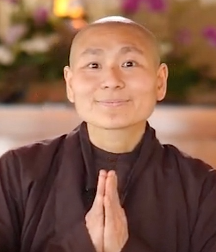 Sister Than Nghiem
Sister Than Nghiem
Sister Than Nghiem (Sister True Spirit), currently resides at Deer Park Monastery in Escondido, California.
.
To stay on top of on all our news, subscribe here for email updates.
Subscribe